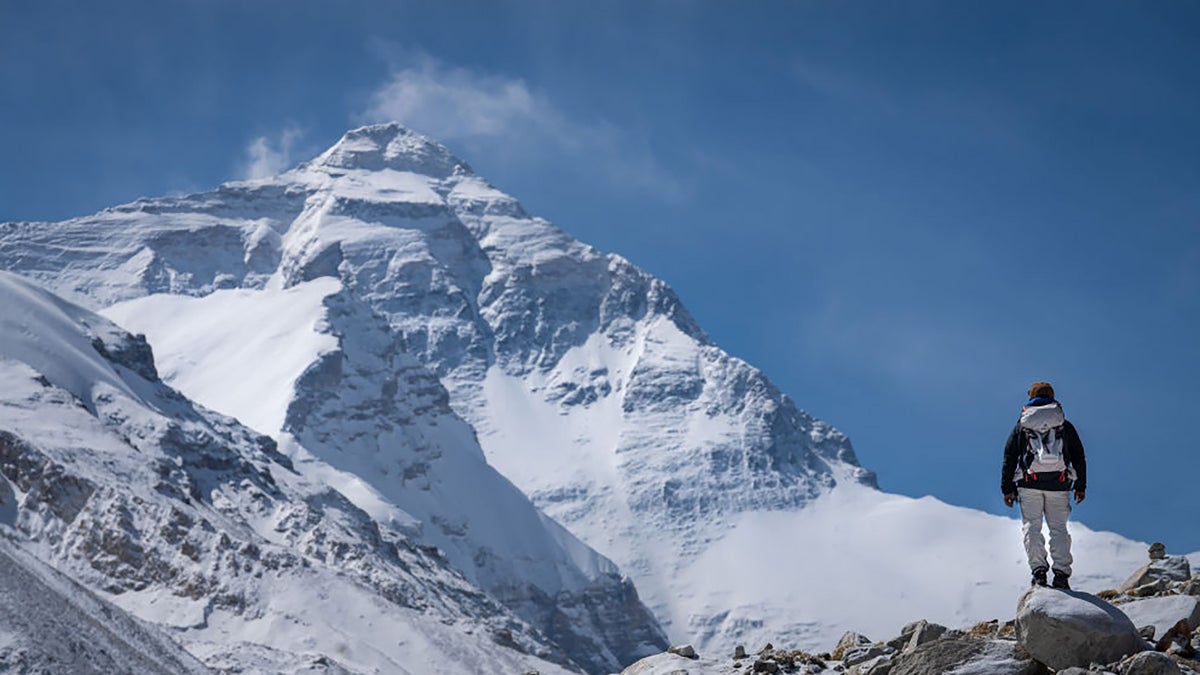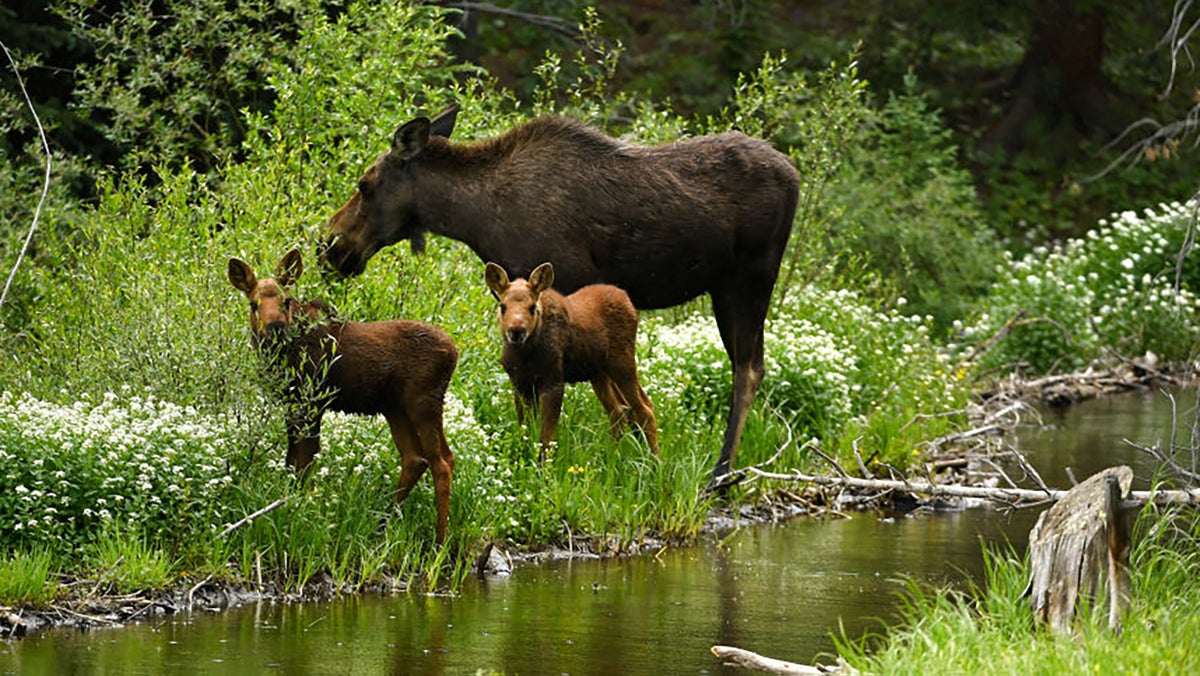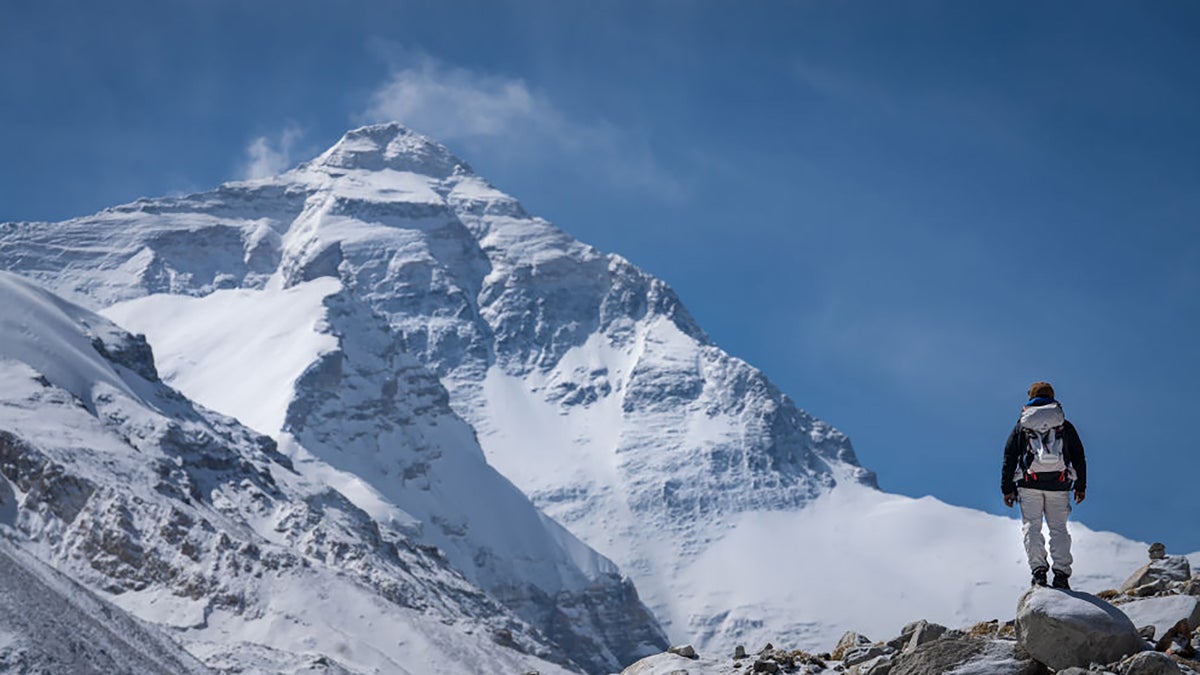
The official end of the 2025 springtime climbing season on Mount Everest fell on Friday, May 29. The occasion was marked by a message of thanks on Instagram from the Sagarmatha Pollution Control Committee, the non-governmental organization that handles trash on the mountain. In one of the video clips, a team of climbers ascends the Khumbu Icefall a familiar gusts of winds buffet the camera microphone.
Indeed, these powerful jet stream winds, which blew across the Himalayas throughout spring, will be the lasting memory for many climber guides who ascended the world’s highest peak this year. These tempests created unpredictable conditions on the peak, confounded meteorologists, and stymied elite climbers hoping to set speed records.
The winds also narrowed the window to ascend the peak to just a handful of days. Hundreds of climbers and guides packed the route between Camp II and the summit on two days this year: Sunday, May 18, and Monday, May 19. Photos and videos showed enormous queues of climbers on the peak, ascending the Lhotse Face like an army of ants.
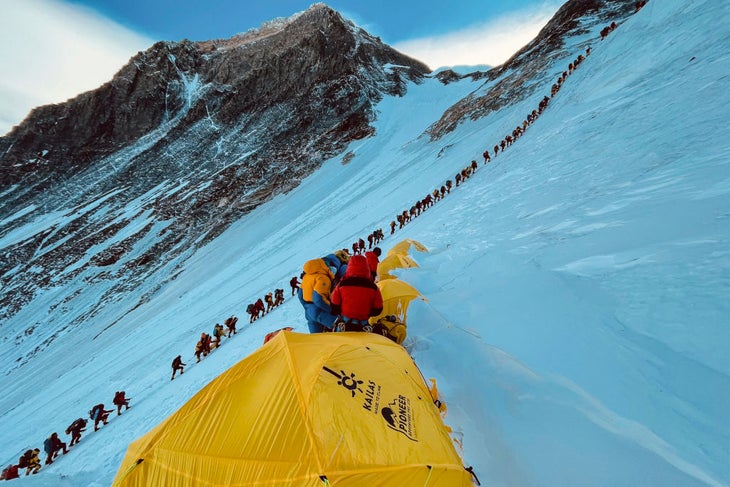
Nepal’s Department of Tourism told Outside that 722 people reached Mount Everest’s summit from the Nepal side: 272 foreign and nine Nepali clients, plus 434 guides and seven rope fixers.Everest Chronicle reported that another 100 or so climbers reached the summit while climbing from the mountain’s Tibet side, bringing the total number of successful climbs to nearly 850, well up from the 600 or so climbers who reached the top in 2024.
Surprisingly Few Deaths This Season
Other than the winds, the biggest headline on Mount Everest in 2025 was the surprisingly low number of climber fatalities. Just three people died on Mount Everest above Base Camp this year: clients Phillip II Santiago of the Philippines, who died at Camp IV, and Subrata Gosh, of India, who died on the Hillary Step. Pen Chhiri Sherpa, a mountain worker, suffered apparent cardiac arrest at Camp I and died days later in Kathmandu.
Two other Nepali workers died in Base Camp: Lha Ngima Sherpa died from altitude sickness, and Ngima Dorje Sherpa died of a brain hemorrhage.
All deaths on Mount Everest are tragic. Yet the 2025 death totals—three on Mount Everest’s upper reaches, five total— represents a decrease from 2024 when eight people died, and in 2023, when 18 lost their lives. The last time fewer people perished was in 2022, when just three died.
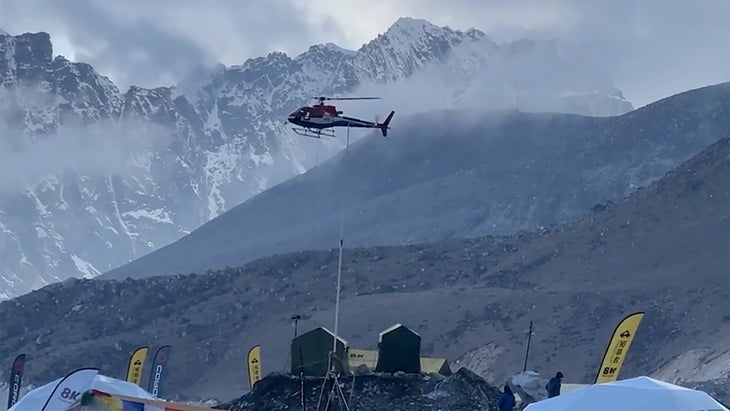
The Four Things That Saved Lives
Absent in 2025 were the mass-casualty events that often generate global headlines: avalanches, falls, or fatalities caused by deteriorating conditions.
Experts credited the relatively safe season to several factors: weather patterns, the preparedness of expedition teams, and the condensed window of summits. “This year’s weather was actually more stable than before,” said Tashi Sherpa of expedition company 14 Peaks Expedition.
The perspective may sound counterintuitive, especially given the prevalence of high winds on the peak. But guides said that the poor conditions in early May pushed the main summit window back to the 18-19, so few teams attempted the ascent in the weeks before this. This allowed expedition operators to fully stock Camp IV at 26,000 feet with oxygen bottles. In previous years, some teams had to rush to the summit to take advantage of weather.
“I honestly think it was a combination of pure coincidence and enough oxygen on the mountain for the main wave of summit teams on May 18,” Austrian guide Lukas Furtenbach told Outside. “I think with a different weather pattern next year with a longer or earlier weather window we can easily be back at 15 deaths again.”
But Mount Everest experts pointed to another factor in the diminished loss of life: the use of helicopters to save stricken climbers at Camp III, which sits at 23,500 feet. These rescues are tricky operations, since Camp III sits within a few feet of the operation ceiling of Nepal’s high-performance helicopters. Some of these rescues require a complex approval from officials in the Nepali government, and pilots have to be careful to not exceed the elevation limit of the helicopter. At that altitude, doing a skids-down rescue is too risky, so crews instead tie the stricken climber to the craft via a long rope.
Lhapka Sherpa, the coordinator for the Himalayan Rescue Association’s Base Camp hospital, said these operations saved multiple lives in 2025.
“This year casualties were low because of long-line rescues,” Lhakpa Sherpa told Outside. “Captain Marutizio Folini rescued three people from Camp III, and Captain Bibek Khadka rescued another.”
Without the helicopter rescues, perhaps three more climbers would have died, he said. “There were also a lot of timely rescues from Camp II that helped too,” Lhakpa Sherpa added.
Two Ultrarunners Come Up Short
The 2025 Mount Everest season will also be remembered for the unsuccessful attempts by two runners—American Tyler Andrews and Swiss-Ecuadorian Karl Egloff—to set a speed record on the peak.
Both men hoped to set a new mark for ascending the peak from Nepal’s Base Camp without using supplemental oxygen. The current mark, 20 hours and 24 minutes, was set by Kazi Sherpa in 1998.
Egloff made his sole attempt on May 23, amid heavy winds, and turned back near Camp III, telling Explorersweb that he had “a bad feeling.”
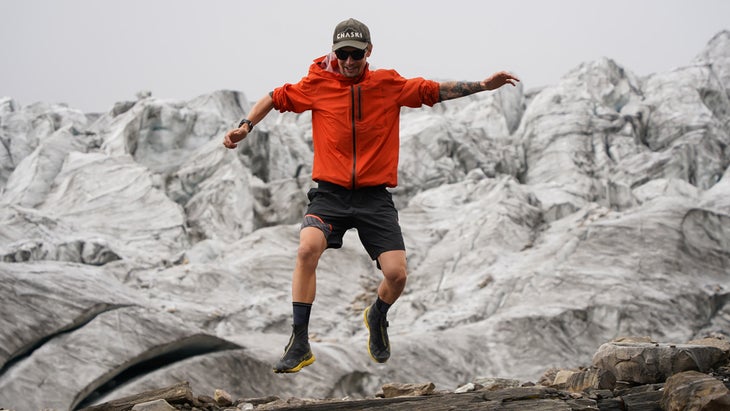
Andrews, 35, made three separate attempts. On May 10, he set off alone and was on record-breaking pace, but turned back just above Camp III after his climbing boot malfunctioned. He made another attempt on May 24, this time with supplemental oxygen, but abandoned that effort just above Camp IV due to dangerous weather conditions.
Andrews’ expedition leader, Dawa Steven Sherpa of guiding company Asian Trekking, told Outside that he made the decision to end that attempt due to foul weather. “I turned him around above the South Col. My team who were waiting at the Balcony and South Summit reported extremely strong winds.”
Andrews made his final attempt on May 27, departing Base Camp at 9 p.m. He sped through the Khumbu Icefall and up past the higher camps.
“I’ll be honest, when I left Camp IV I thought, ‘there’s no way that I don’t get this record,’” he told Outside.
But as he pushed into the so-called “death zone” above Camp IV, Andrews began to slow, and his mind became foggy. He believes his earlier attempts, and his travel to and from Kathmandu between attempts, sapped him of too much energy from his body.
“I was just out of gas by the time I got up there. I was totally fried and just moving too slowly,” Andrews told Outside. “The thing that did it for me, I was having hallucinations high in the mountain from fatigue. I was by myself. There’s no one else on the mountain. And I just thought, I don’t really trust my brain to be working on autopilot and doing the safety stuff that I need to feel good about being on that terrain.”
Ultimately, Andrews abandoned his third attempt after 19 hours of climbing. He was just 1,500 feet shy of the summit.
Rapid Ascents From Sea Level
Climbers on Mount Everest chased speed records of a different nature in 2025, attempting to travel from sea level to the summit in just a matter of days. These rapid ascents require climbers to pre-acclimatize at home using altitude tents and other methods, and thus skip the traditional acclimatization hikes to high camps on the peak, which can take two months to complete.
The highest profile rapid ascent was completed by the Mission: Everest team, a group of four military veterans from the United Kingdom who traveled from London to the top of Everest and back in just one week. The group used the media coverage to raise money for charity.
Prior to their ascent, the Mission: Everest climbers traveled to Germany and underwent an unorthodox treatment. They inhaled xenon gas that some scientists believe boosts erythropoietin, or EPO, and improves performance at altitude. Xenon is also banned by the world anti-doping agency as a performance-enhancing drug.

The Mission: Everest team left London on May 16th, and reached the summit on the morning of May 21st, after narrowly avoiding an avalanche in the Khumbu icefall on their way up. They returned to London on May 22, beating the seven-day window.
The publicity around the expedition prompted the Nepal Department of Tourism to open an investigation into the ascent and their use of Xenon gas.
Mission: Everest wasn’t the only team to complete a rapid ascent. Two days before they summited, a Ukrainian-American climber named Andrew Ushakov topped Everest less than four days after departing his home in New York City.
Ushakov did not use xenon to prepare—instead, he used a hypoxic altitude tent for four months prior to his trip. “Not many people know about pre-acclimatization,” he told Outside. “I wanted to show that a regular guy, a non-athlete, with a broken arm could climb it in four days. Then others might think they can climb it in 15 days, not 45 days.”
Other Notable Ascents
Similar to past years, a number of record-chasing climbers reached the top of Mount Everest.
Nepali climbing legend Kami Rita Sherpa made his 31st ascent, breaking his own world record, while guiding an Indian Army expedition to the top. He summited in the second weather window on May 27th.
Tashi Gyaltzen Sherpa of Nepal climbed Everest four consecutive times in 15 days, setting a new mark for successive ascents. On his third trip to the top, Sherpa guided Bangladeshi climber Ikramul Hasan Shakil, who had walked 800 miles from his home on the Bay of Bengal to reach the summit.
A group of 19 Indian Army cadets, aged 16-20 years old known as the National Cadet Corps, also reached the top. This massive group was led by Jenjen Lama, 33, an IFMGA-certified guide, and managed by Seven Summits Treks – Nepal’s largest Everest operator.
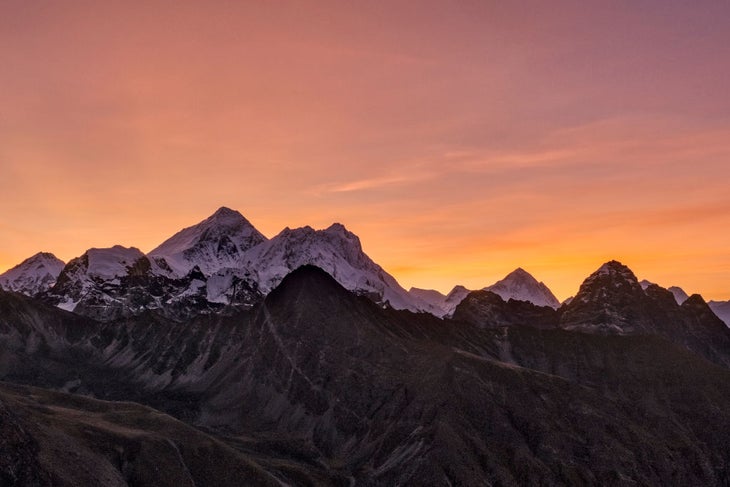
The 19 Indian climbers were selected from an initial pool of 1.7 million candidates across India. They spent a year training for the ascent.
The group departed Base Camp on May 14 and climbed steadily up the peak. In addition to the 19 Indian climbers, Jenjen oversaw 22 mountain workers who had spent the early season ferrying oxygen, food, and fuel to high camps.
When the group pushed for the summit on May 18, they encountered a massive queue.
“When we reached Camp III, there were 800 people there,” Lama told Outside. “And when we climbed up towards Camp IV it was so crowded we could barely move. It should have taken us eight hours to reach the camp, but it took us 11.”
Knowing the summit push would be just as bad, if not worse, Lama’s team rested for a few hours at Camp IV, and then departed at 6 P.M. on the evening of May 17th to beat the crowds. They passed the body of Santiago as they departed camp.
The team climbed up the steep final ridge towards the summit in the absolute darkness, reaching the top of the world at 3:25 A.M.
Even then, they weren’t alone.
“There were more than a hundred people on the summit with us,” Jenjen Sherpa said. By 5 A.M., his entire team reached the summit and began their descent, which was slowed by a line of climbers ascending in the opposite direction. “We were lucky to get down through the Hillary step without anything going wrong.”
The post Mount Everest 2025: Fewer Fatalities, Dangerous Winds, and Rapid Ascents appeared first on Outside Online.











